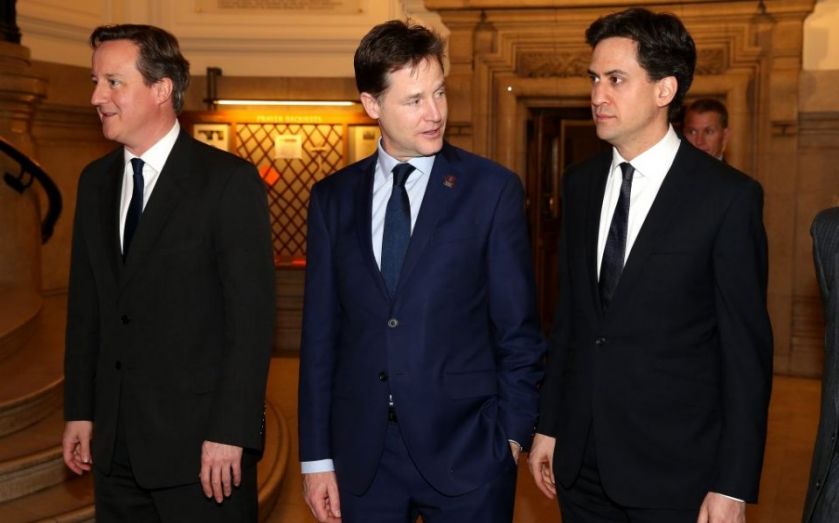On tax and spending, the voters are right: Our politicians are all the same

There are still 23 days to go, and the signs are bleak. Astonishingly, the rest of this election campaign could be even more trivial, insubstantial and tedious than we have witnessed to date.
This week, the political parties unveil their manifestos. This will have the effect of locking them all into a pattern of endless repetition of key policy pledges over the three weeks between now and polling day. Perhaps you feel it’s been sounding like this already.
On the upside, this means we will see an end to the drip, drip of ill-considered policy announcements being used to secure a headline in a sympathetic newspaper. The downside is that a content-free election campaign is set to become even more vacuous.
All of the major parties are operating within the same broad economic paradigm. Tax revenues, as a percentage of national income, are at about the highest overall level the government could hope to secure. State expenditure is outstripping this revenue by about £10m every hour. GDP growth – at about 2.5 per cent a year – is widely seen as an external God-given feature of economic life rather than as something which can be helped or hindered by government.
Given the widespread acceptance of this grim consensus, you might expect the debate to be based around how many angels you can get on the head of the pin. It’s been worse than that. The parties are starting to argue about which angel should stand exactly where.
So we hear from the Tories that capping energy prices is economically illiterate, but fixing rail prices is apparently prudent. Labour then out-trumps this by seeking to shuffle even more cash from road users to railway users. A Labour pledge to increase spending on the failing NHS by £2.5bn is met by a Conservative promise to display yet more largesse – they’ll throw £8bn at it.
The electorate can expect to be subjected to “death by slogan” over the coming weeks. A fairer society. A stronger Britain. A brighter future. The mainstream parties may as well be running under the banner of “We’ll basically try to just muddle through”.
They appear to accept that the deficit needs to come down and the state needs at least to pretend to live within its means. There’s a desperate desire to prove fiscal responsibility by showing exactly where each and every pound is coming from for any enhanced public sector spending splurges. At his manifesto launch yesterday, Ed Miliband was at pains to prove everything added up to the very last penny.
They are all against excessive public spending in general – but it’s devilishly difficult to pin them down on which expensive state programmes they would slash or abolish. The truth, of course, is that the state is spending and doing far too much. Our politicians are promising more goodies to key target voters and seeking to pay for this out of some amorphous – but apparently limitless – pot of billions paid for by multinational companies, bankers and tax avoiders. The fact that tapping into this largely fictitious fund will raise very little revenue, lead to higher prices, and inhibit economic growth is never addressed.
The sort of politician Britain needs is someone with the courage to say that the vast majority of people should be expected to stand on their own two feet over the course of their lifetimes. That the monolithic state is not an efficient provider of healthcare, pensions, insurance – or virtually any other important service that people desire. That the government should only seek to raise and spend around a third of national income – not nearly 50 per cent of it. That our tax rules should be simple and straightforward – not a politically generated mess of over 20,000 pages of loopholes and exemptions.
In the absence of such a figure, expect the average voter to repeat the refrain “they’re all the same”. That sentiment is much closer to the truth than the political establishment is willing to accept.